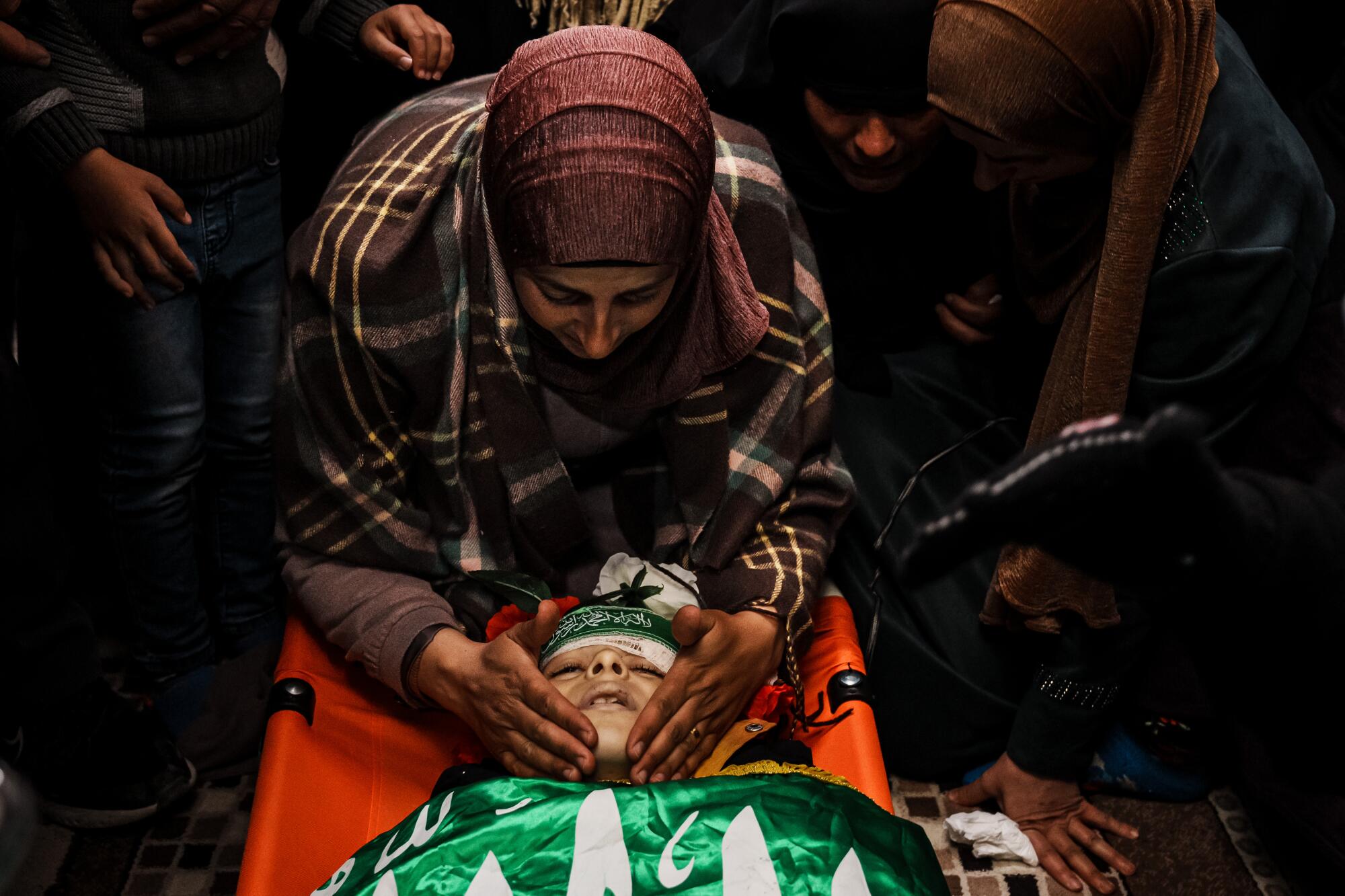
On a bright and nearly cloudless day in the West Bank village of Burin, hundreds gathered to bury a 10-year-old boy named Amro.
Since Oct. 7, when Hamas militants killed about 1,200 people in southern Israel, the world’s attention has been on the war in Gaza, where local authorities say more than 32,000 Palestinians have died in the Israeli invasion.
But the war has had reverberations in the West Bank, where rising tensions between Israel and the Palestinian population have often turned violent. The official death toll over the last six months includes at least 434 Palestinians — about a quarter of them children — and 15 Israelis.
Amro Najjar was shot and killed March 4 during what the Israeli Defense Forces described as “counterterrorist activity.” He was buried the next day.
Each death is different, each family’s grief unique, but the rites for Amro capture the emotions and sorrow in a region where it seems neverending.
“We don’t have the most basic human rights or sense of security or safety,” said Ibrahim Omran, who heads Burin’s council. “We are in God’s care.”
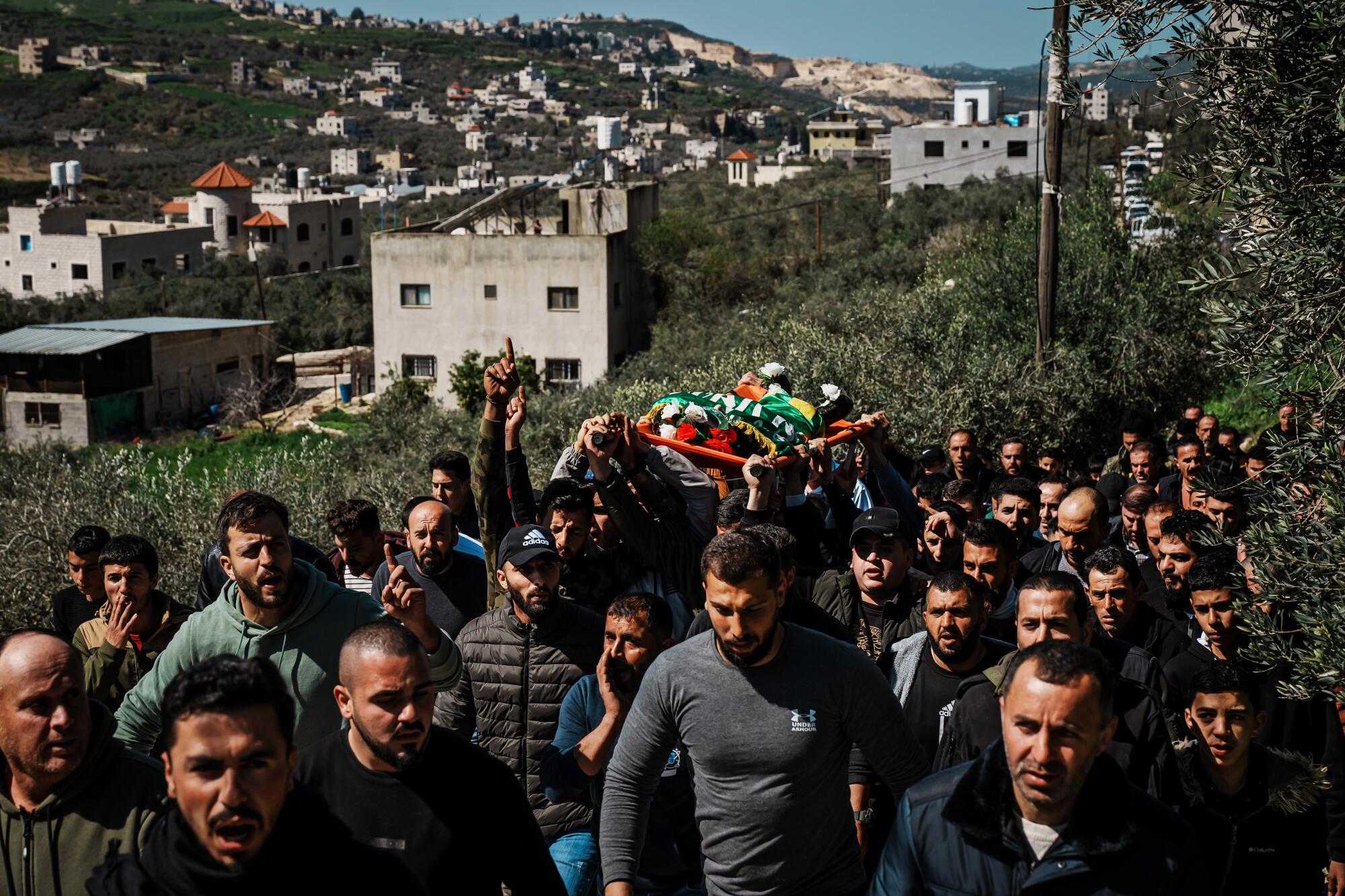
Community members and relatives carry Amro’s body to the cemetery. When Israeli forces entered town, they ordered people to go into their homes, and shopkeepers to close their shops, Omran said. The IDF said that after “a number of suspects hurled rocks at soldiers,” Israeli forces “responded with live fire.”
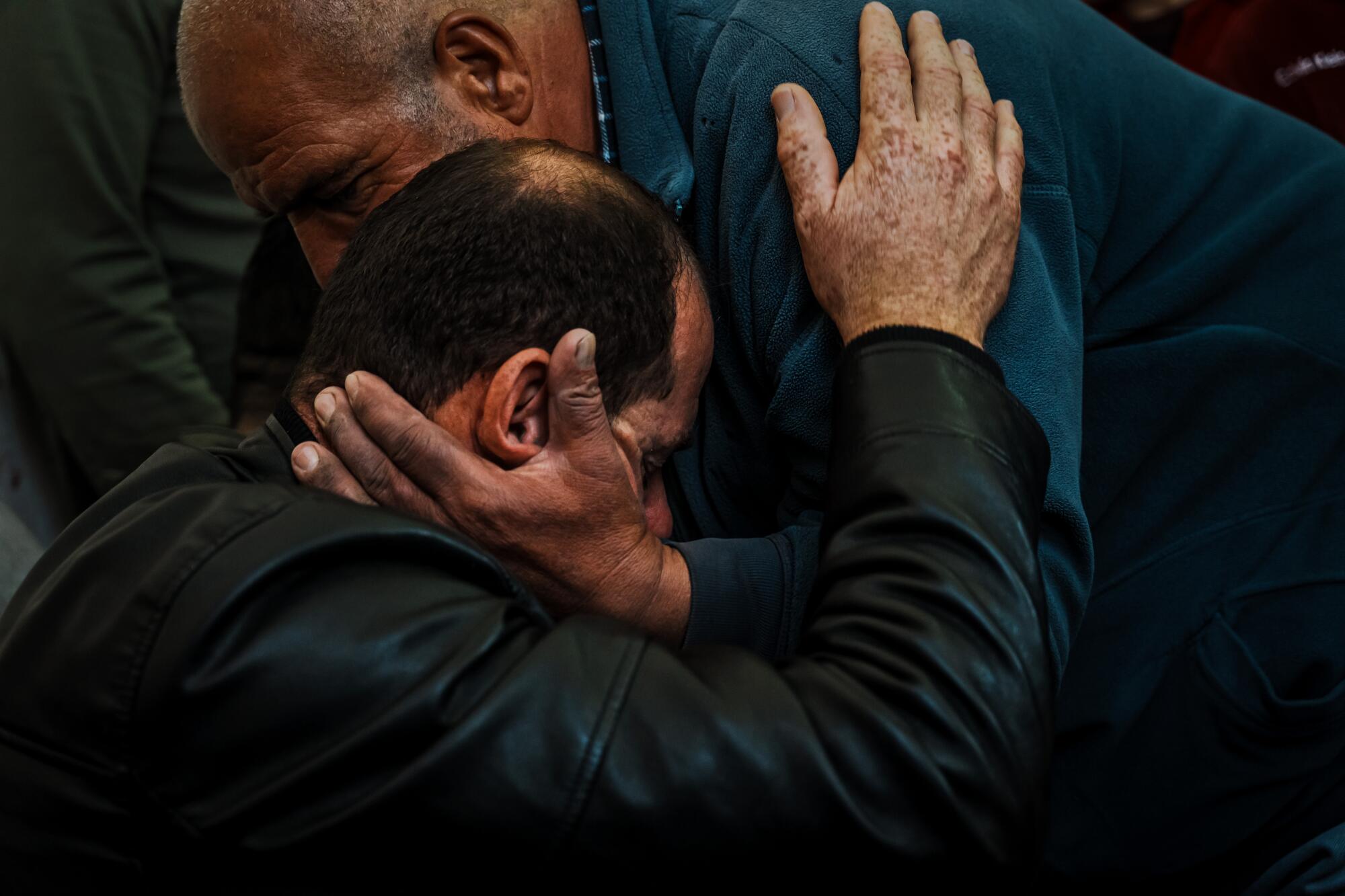
Mohammad Najjar is consoled during the funeral procession for his son. Najjar was in his car with Amro and his other son, Ahmad, 8, when Israeli forces opened fire. He and the boys crouched down, he said, waiting for the shooting to stop before he drove on. The gunfire started again, leaving a spider-web hole in the windshield. Amro was struck in the head.
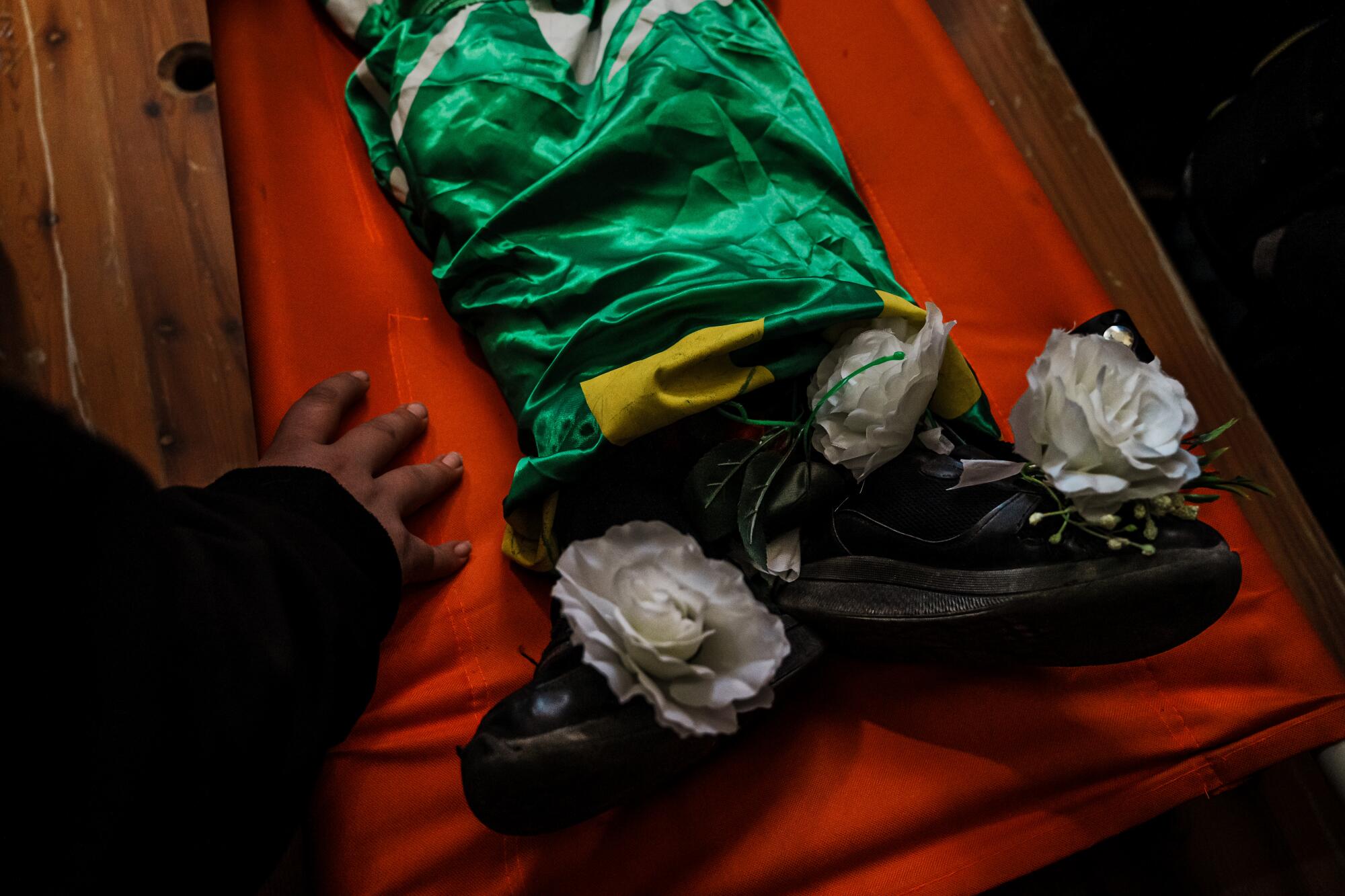
Amro was sitting next to his father when he was shot. Najjar said that when he realized his son had been hit, he called for help. Bystanders pulled him and the boy from the car. Ahmad was able to run off.
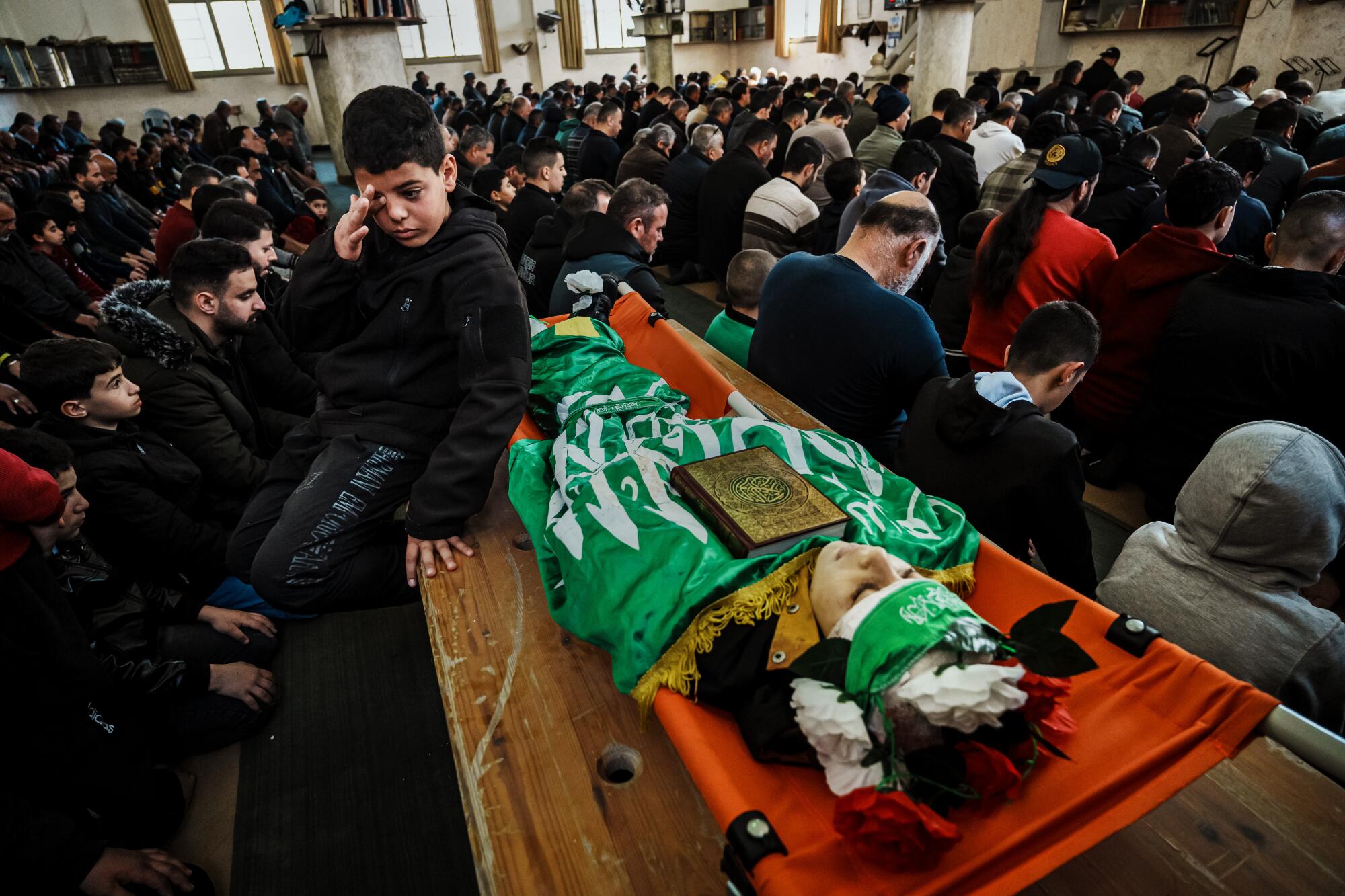
Naseem Majdi, 12, sits beside the body of his friend Amro on a wooden table inside a mosque in Burin. Behind him, hundreds of Palestinians line up to the call to prayer.
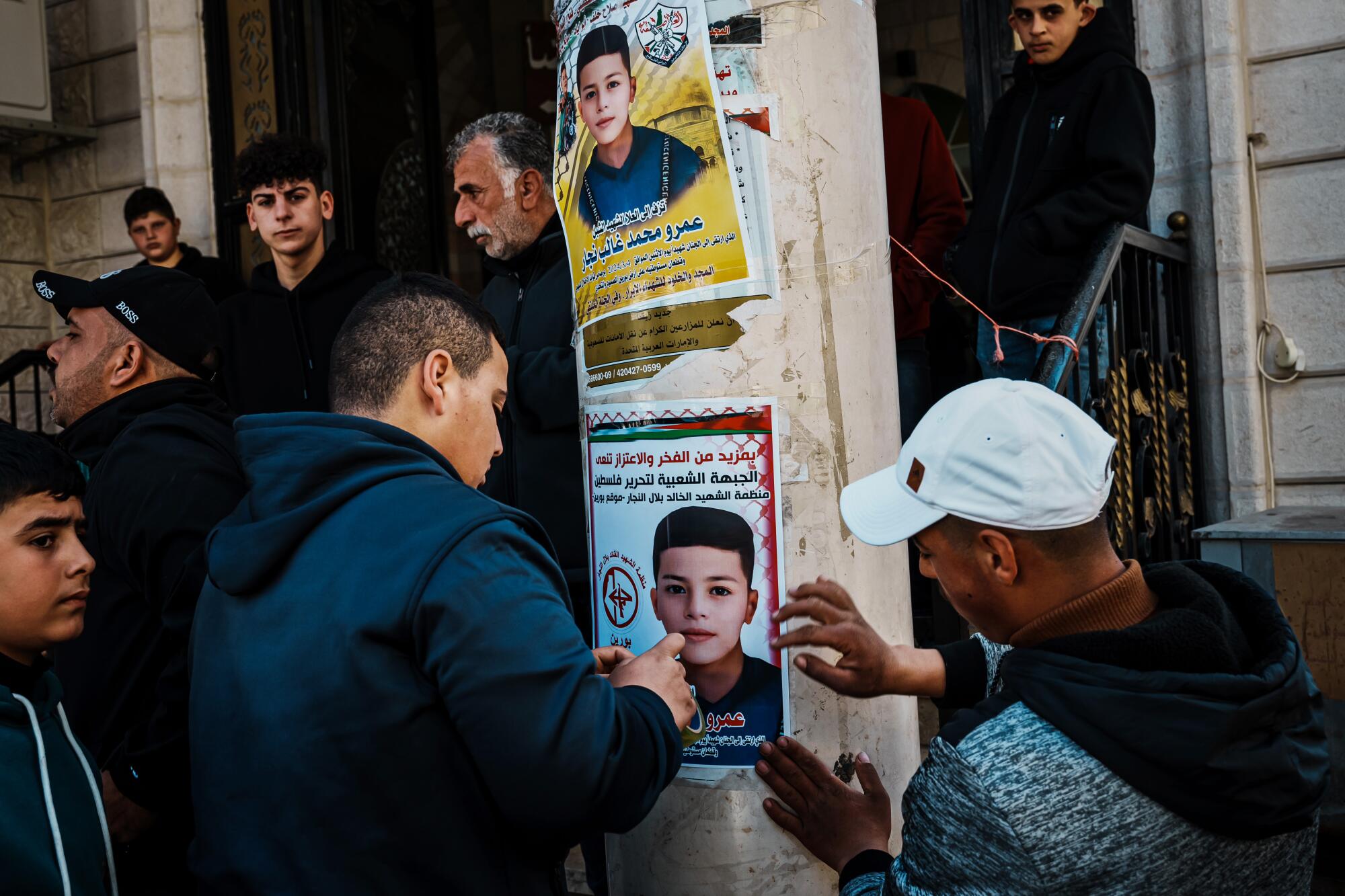
Community members put up martyr posters outside the mosque. “Decades of systemic impunity has created a situation where Israeli forces shoot to kill without limit,” said Ayed Abu Eqtaish, accountability program director for the group Defense for Children Palestine.
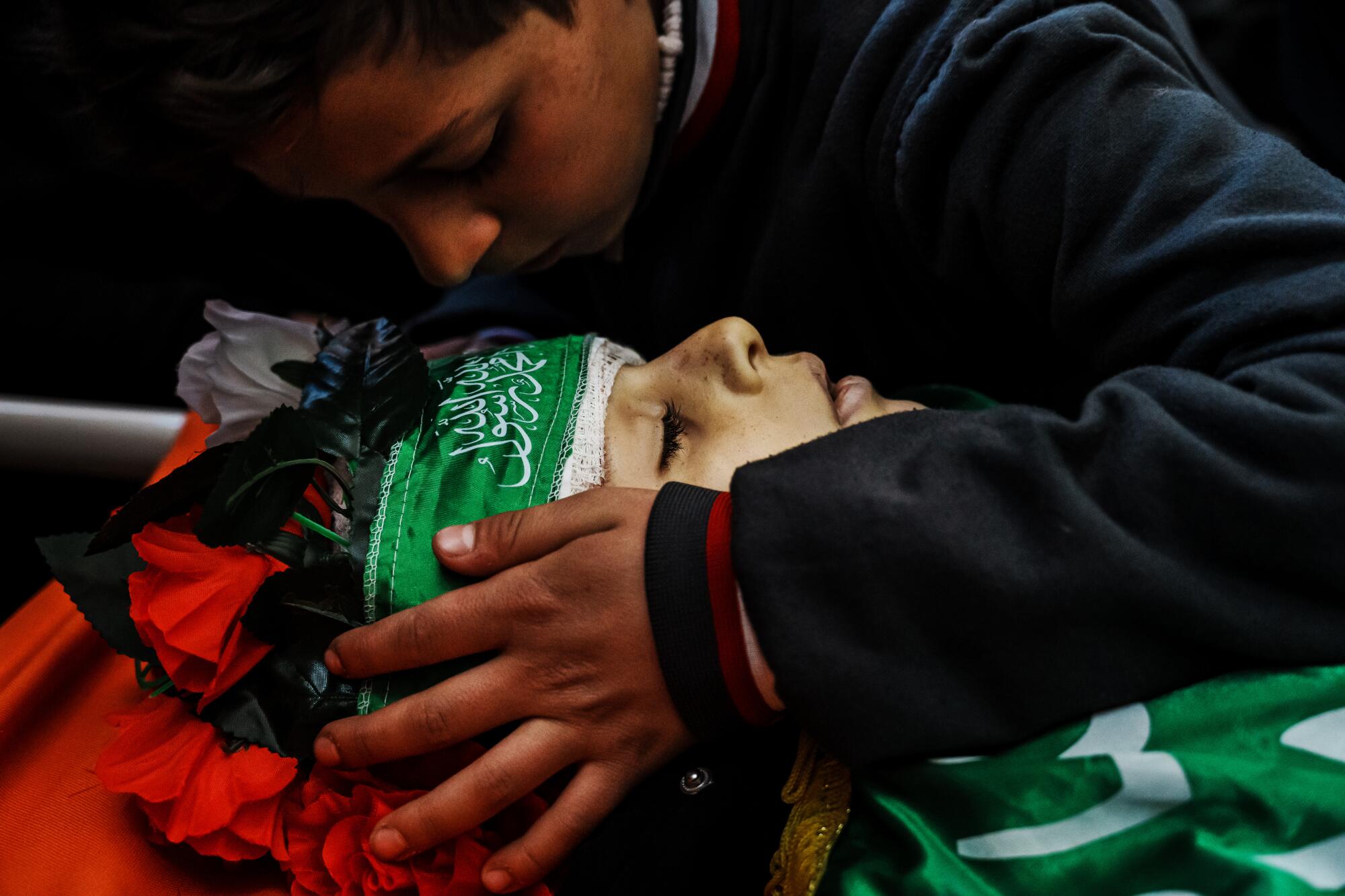
A friend of Amro’s remembers him as someone who read the Quran diligently, played soccer, enjoyed going to school, spent time with his father and treated others with respect.
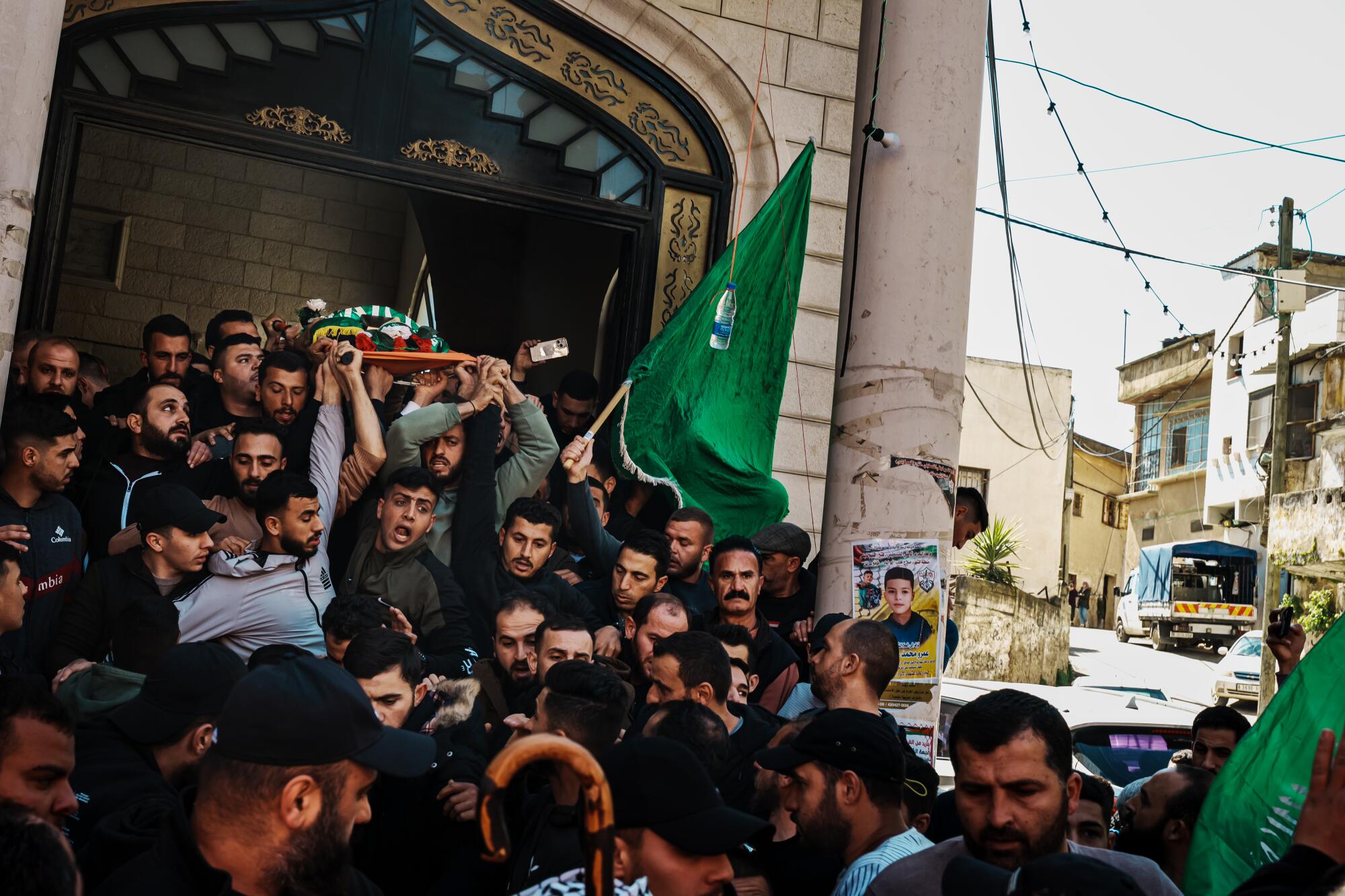
After the prayers end, mourners carry Amro’s body out of the mosque. Loud chants follow the procession toward the cemetery.
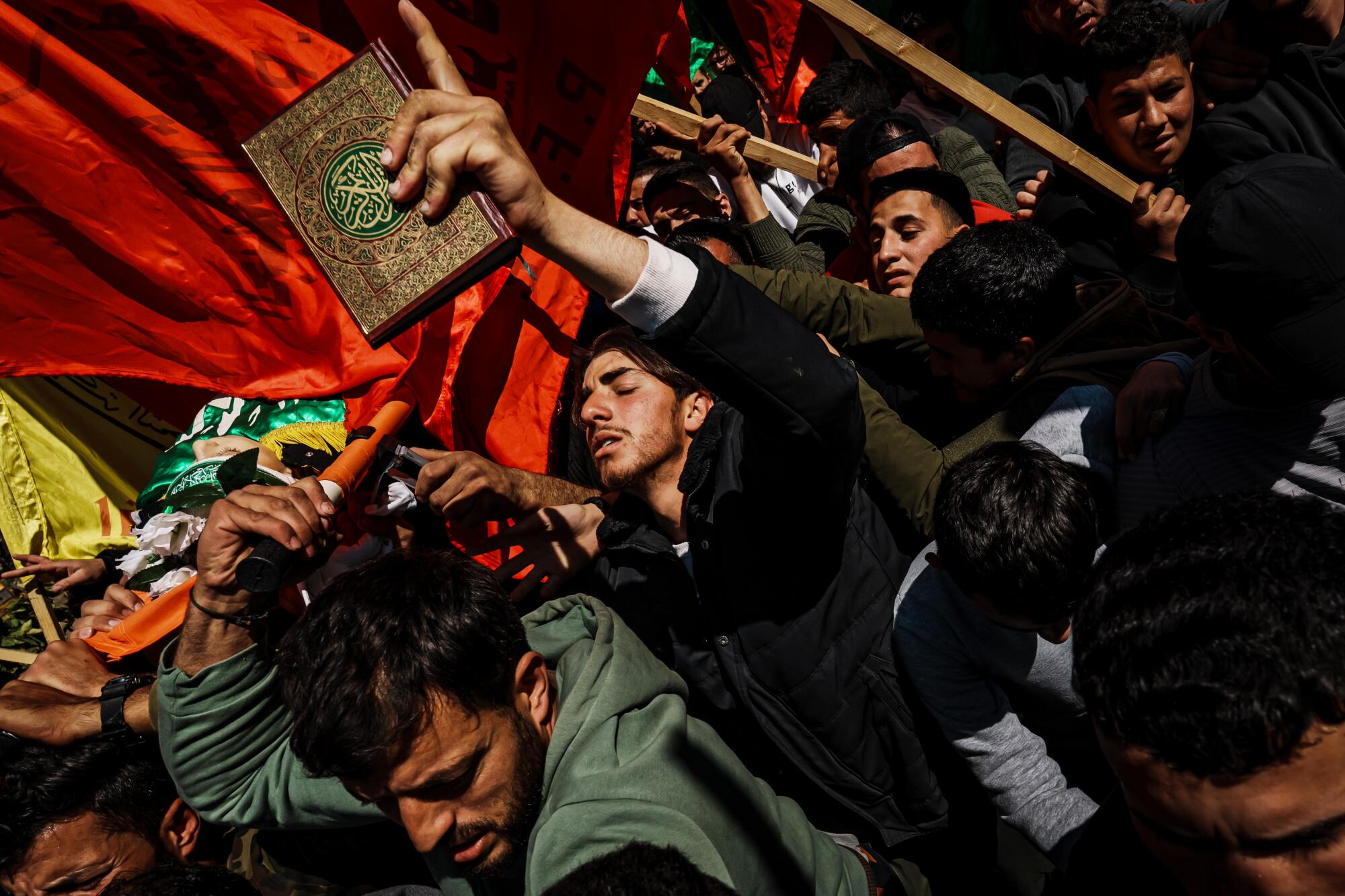
A man holds the Quran during the funeral procession. Hundreds attended the rites from a village of about 2,800 residents.
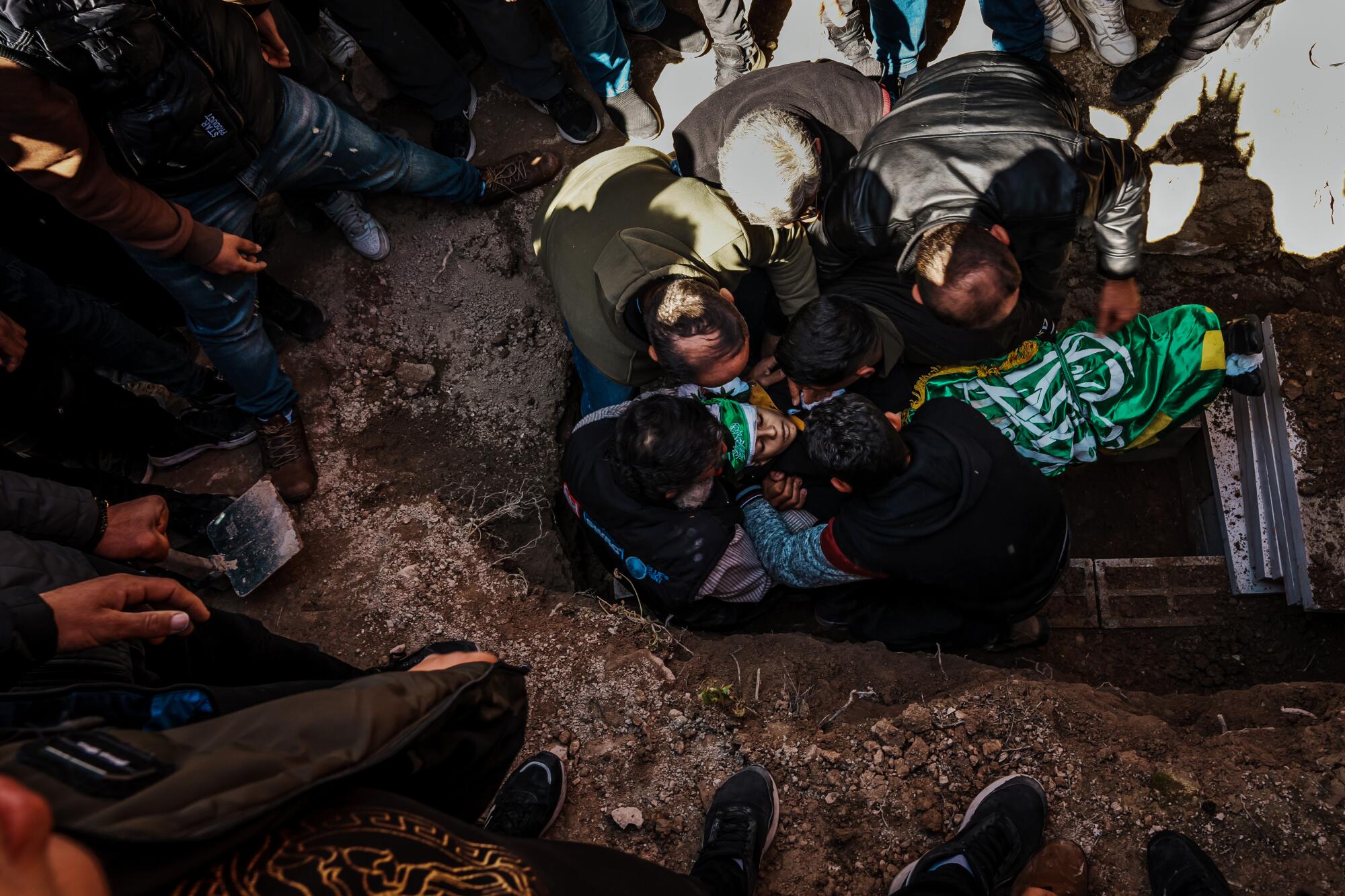
Community members gather around as members of the Najjar family place Amro in his grave.
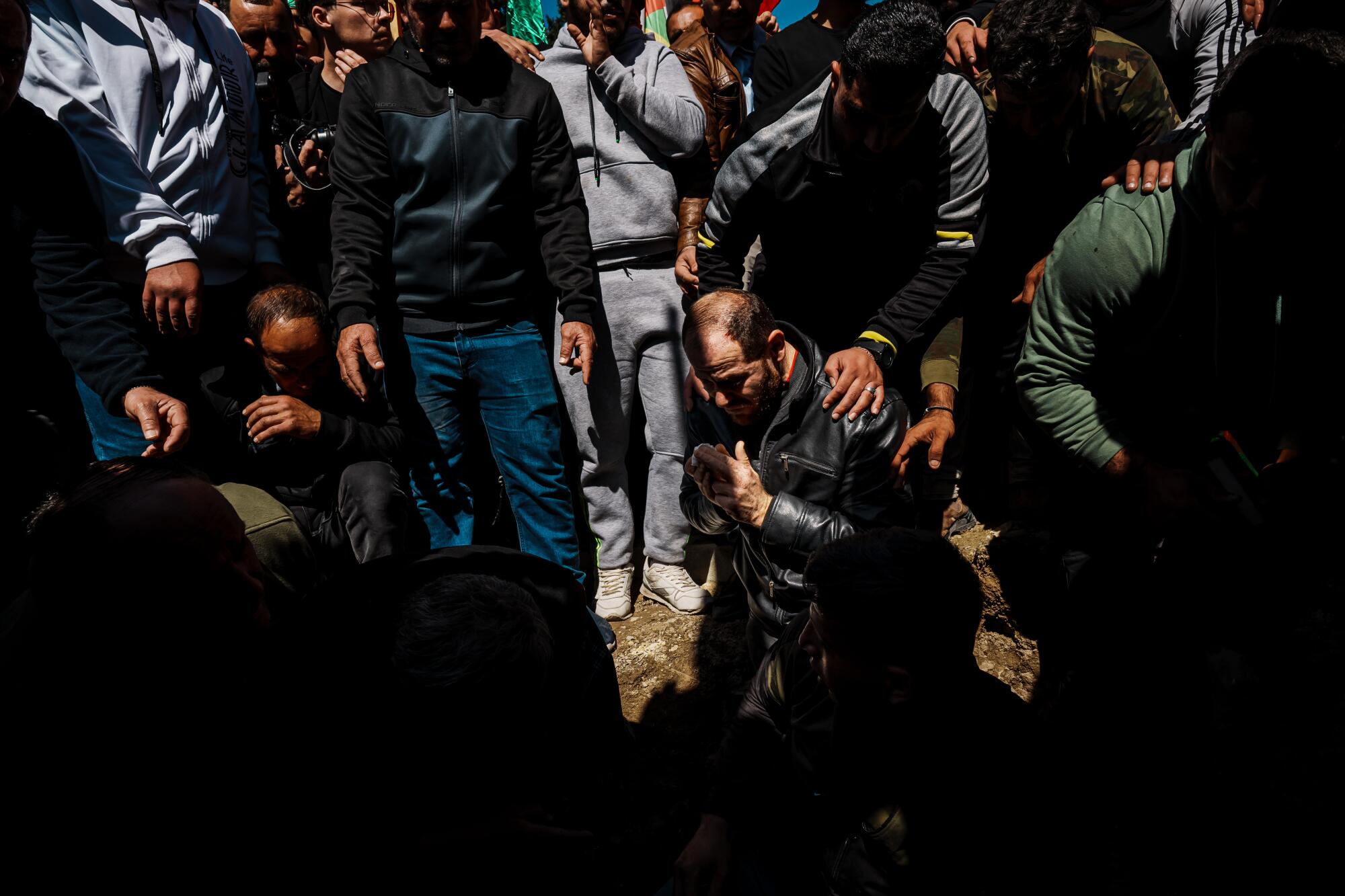
Mohammad Najjar, bottom right, is consoled after burying his son. “Amro was very social, loved by everyone. His connections with people were older than his age,” Najjar said.
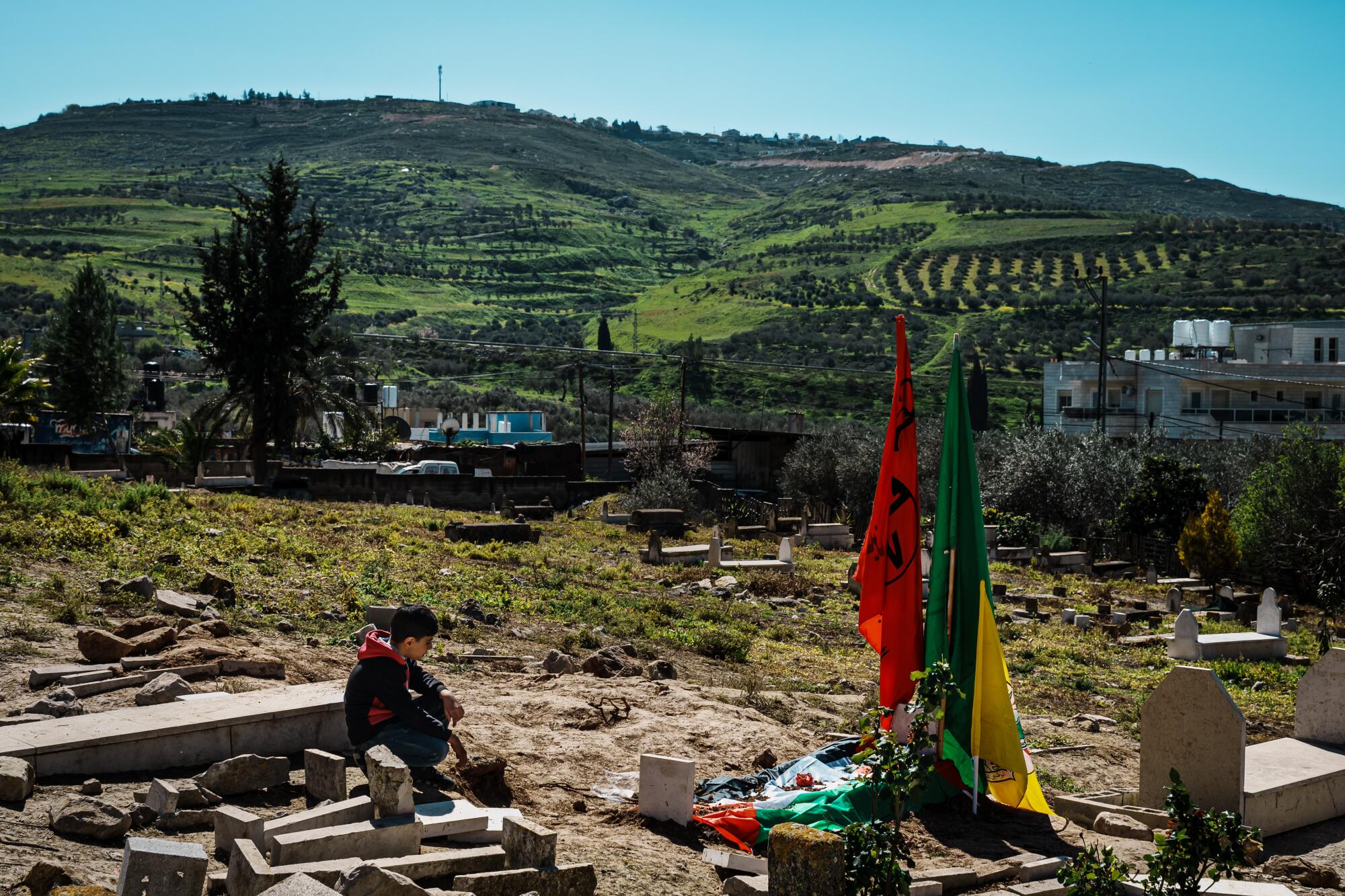
A boy sits quietly after the funeral. The IDF confirmed Amro’s death, saying, “The circumstances of the incident were examined and it was found that the boy was hit by a stray bullet.”
More to Read
Sign up for Essential California
The most important California stories and recommendations in your inbox every morning.
You may occasionally receive promotional content from the Los Angeles Times.











